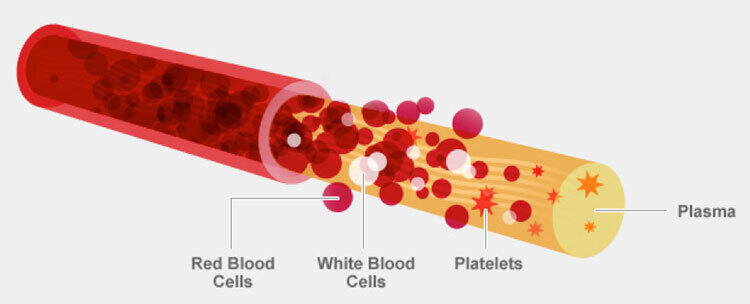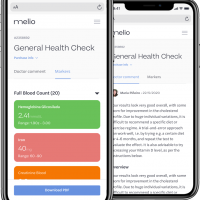Why You Should Do Regular Blood Tests?

Blood testing is one of the most powerful ways to know about yourself and your health. If you are tracking other aspects of your life, then I recommend tracking your blood too. Blood testing will tell you if you have a disease (or are predisposed to one), how your organs are functioning, the effectiveness of medicines, supplements, or fitness regimes, and much more. Blood tests are quite easy and fast, and they provide a wealth of information.
Blood is a bodily fluid that handles several important biological functions. Like checking the oil to know a car’s engine, you can understand the state of your body and its organs by testing and examining your blood and its constituent parts.
While blood testing may come with a periodic medical check-up, they are often reserved for when you have a medical problem and need a more intensive evaluation for a disease. By contrast, I would argue that everyone should get their blood check done regularly and not exclusively when you are sick. Moreover, everyone should gain a basic understanding of what is blood testing and how to read lab results. Your blood tests can help you optimize for wellness and performance. You can consider tracking your results too.
Understanding your blood and blood testing are logical extensions of a more comprehensive regime to track your health, productivity and life. Blood testing is a form of professional manual tracking. They aren’t hard, but unlike other forms of passive or manual tracking, blood tests require professional equipment, time, and money.
Unfortunately, like much of the medical space, blood testing can feel highly professionalized and difficult to understand for the layperson. This is unfortunate since blood testing results shouldn’t be the domain of experts nor exclusively used when you are unwell. In fact, blood tests should be something any health-conscious person can get done regularly and can easily learn to understand.
In this series of posts on blood tracking, we at MKARE want to look at a range of topics related to blood and how it can be used to help people, in general, understand their health. We want to showcase to you how important regular blood checks are, and how they can be easily done with MKARE.
Admittedly this is a topic that can get pretty technical. Even getting started tends to unravel into a new vocabulary and obscure acronyms. We will do our best to approach an explanation of blood testing step by step and cover the essentials and most useful aspects.
Our emphasis is on how to use blood testing as a measurement for getting feedback on your body and yourself. We want to use blood testing as a framework for being “data-driven” in your health decisions and health tracking.
Here is the plan: First, in this post, we will look at why you should get regular blood tests and some of the basic aspects of blood testing. In later posts, we will be examining some of the best blood tests, how to read your initial results and how to track your blood work over time. While the main focus will be some of the most common blood tests, we will highlight a few specific blood biomarkers and blood tests (like Vitamin D and Homocysteine) that are particularly beneficial. Finally, we will look at some resources and steps you might use to create a data-driven process around your blood testing, your health changes and lifestyle improvements.
Let’s get started by looking at what is blood and blood testing.
What is Blood?

Your blood consists of cells and lipids.
The average adult has roughly 5 litres of blood, and our blood typically counts for 7% of our body weight. Blood is a bodily fluid whose primary function is to transport to and from the cells nutrients and oxygen as well as remove metabolic waste products. Your blood also detects foreign bodies and handles immunization, delivers messages through hormones, and regulates body temperature.
Blood mostly consists of plasma, which is the primary fluid aspect of blood and makes up 54% of the blood’s total volume. Blood also contains a mix of proteins, glucose, minerals, hormones, carbon dioxide and blood cells themselves. Amongst the blood cells, the biggest number are red blood cells (RBCs), which make up 45% of blood. Additionally, you have white blood cells (WBCs) and platelets.
What are Blood Tests? Common Biomarkers of the Blood?
Blood tests involve taking out a sample of your blood and then analyzing it in a lab. A blood sample can be extracted either via the vein using a needle or via a fingerpick.
The extracted blood samples are run through biochemical analysis to look at different biomarkers and compared them to common reference ranges. They can then be used to understand underlying functions. For example, a blood test can help you understand your overall blood health, your metabolism, your liver function, your mineral levels, or various other biomarkers according to the specific tests.
Typical blood tests include a Full Blood Count (FBC), which measures the percentage of different blood cell types, and a Urea and electrolytes (U&E), which looks at different biomarkers related to your metabolism.
There are a lot of different blood tests, and it can get pretty confusing. We will look at many of these tests and biomarkers in detail in future posts.
For now, here are some of the most common biomarkers blood testing can measure: RBC, WBC, Hemoglobin, HDL, Total cholesterol, LDL, Magnesium, Triglycerides, Insulin, and Glucose. With additional blood tests, you can look at other important biomarkers like Cortisol, High Sensitivity C-Reactive Protein, Vitamin D, Creatine kinase, Ferritin, Calcium, Vitamin B12, Folate and Homocysteine.
How to Read Your Blood Test Results?
Blood testing can seem quite technical and jargon-filled. This is partly the problem of poor design in how results are presented and also an artefact of medical knowledge being sequestered to medical professionals. As hospitals and treatments get more expensive and disease-focused, it’s important to take health and wellness into your own control.
Reading your lab results isn’t that hard. Your blood test results are first compared to a simple reference range. For example, a blood result is given and then you compare it to a range of results from previous test ranges in general or for that lab. All you need to know initially is if your result falls within the range of normal. If it doesn’t, is it low or high and possibly what does that mean?
.
The benefit of private Blood testing with MKARE: You do not have to know how to read your results!
When you book blood testing with MKARE, you do not have to go anywhere. We are coming to your home, office, nursing home, or wherever you tell us! Your blood sample will be taken by one of our experts who carefully takes the highest quality sample and supports you throughout. Mkare blood test appointment is just 15 minutes long, in place of your residence.
One of our doctors will review and interpret your Blood Test Results together with the medical information you have provided in your profile.
Your results will be explained by our doctors in your personal comments so that you can contact your GP in case of any results are out of range. We will notify you very clearly if you need to follow up with your regular GP. In case of very serious or urgent findings, one of our doctors will reach out to you directly.
How it works?

Buy without medical prescription

Arrange your Appointment

Take your test

Get your results
After you purchased your test, one of our team will contact you to book a visit/venepuncture. Our skilled health professionals will come to your home and take the blood sample. Your blood sample will be sent to our labs for testing. You will get your results in 3-4 working days. A member of our medical team will prepare a digital report with your results and recommendations to take control of your health.






